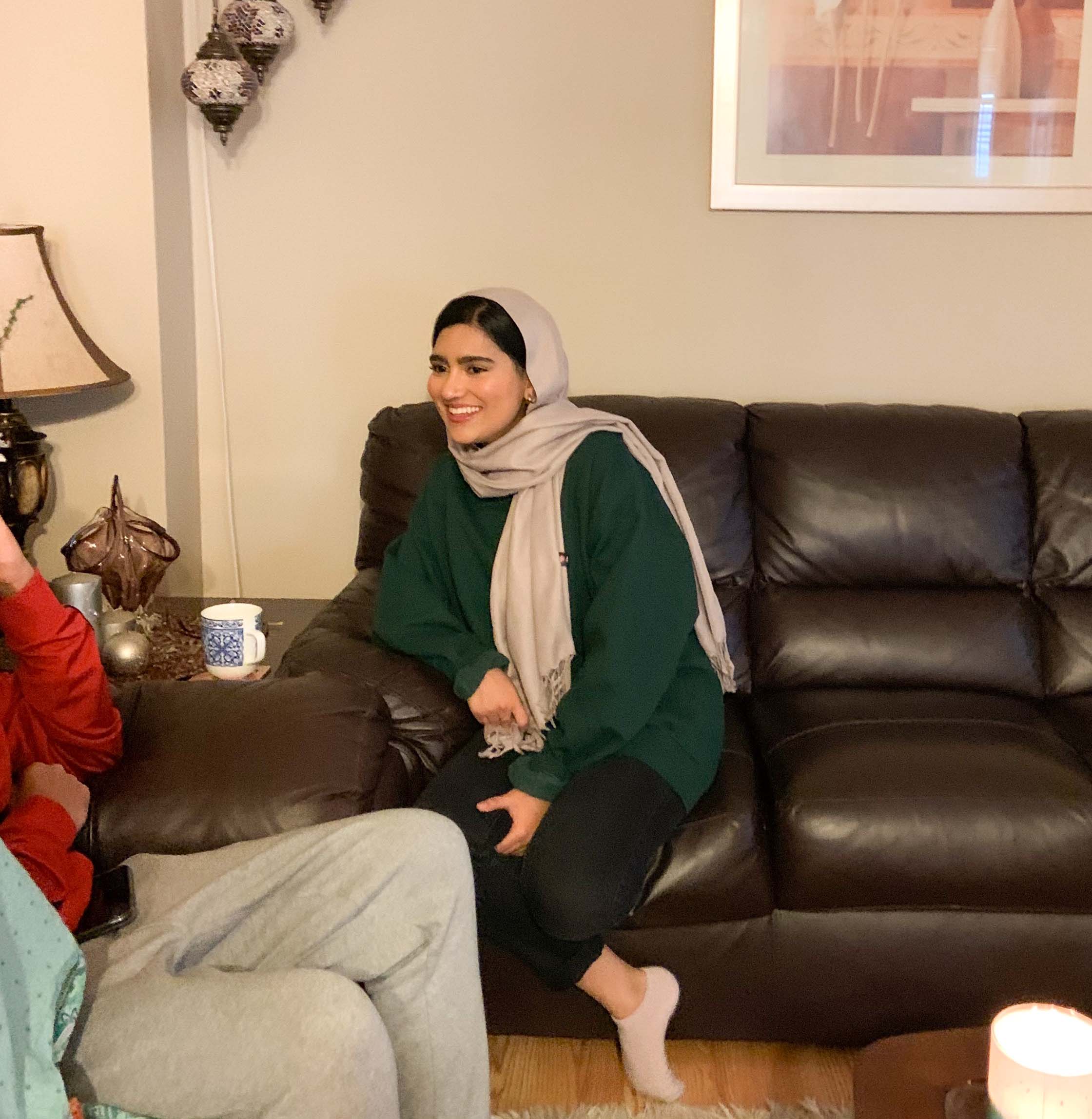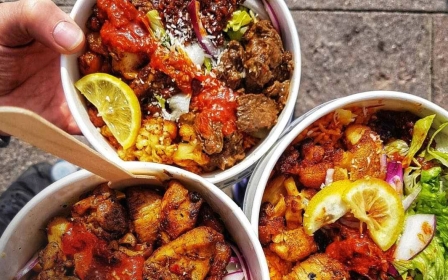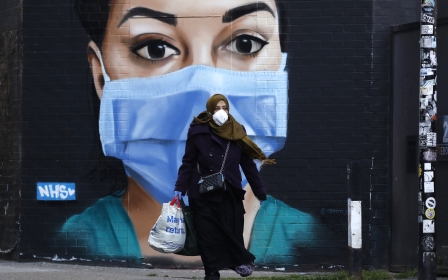'A month we will always remember': American Muslims welcome Ramadan under lockdown
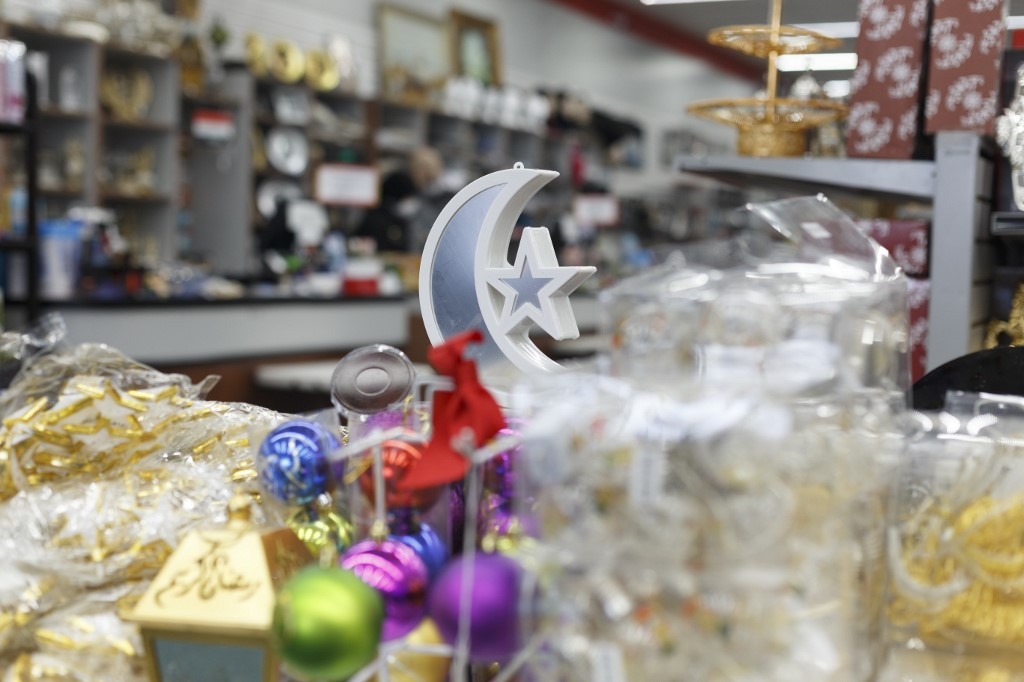
With the coronavirus pandemic said to be reaching its peak in the United States, Muslims are facing a new reality: a Ramadan without the mosque.
During the Muslim holy month, mosques go from being places of worship to centres of the community.
Many hold daily iftar meals for people wanting to break their fasts, they also hold nightly prayers, Taraweeh, which are attended by young and old alike.
'I'm sad, but if anything, it's going to be one of the Ramadan's we best remember'
- Hassan Kane
It's a time of heightened social activity, when there's an emphasis on giving and sharing.
But this Ramadan, lockdown measures have taken a toll on the country's 3.45 million Muslims, impacting individuals' finances, as well as those of mosques, and leaving a spiritual void for many.
New MEE newsletter: Jerusalem Dispatch
Sign up to get the latest insights and analysis on Israel-Palestine, alongside Turkey Unpacked and other MEE newsletters
Still, the people that spoke to Middle East Eye said they were looking forward to the holy month and planning to make the best of their situation - which involves still being social and connecting through their faith.
Making a mosque at home
Shams Hamid, a senior at Virginia Commonwealth University, came home to Woodbridge, Virginia, after schools closed last month.
With ample time on her hands, she's come up with different ways to enhance her Ramadan experience at home.
She's begun creating a mini-mosque inside her home, with decorations to make it feel like a special space. She and her family also intend to dress up in special clothes for Taraweeh prayers, as if they were going to the mosque.
"We're looking to wear special abayas (dresses) as if we're going to the masjid," said Hamid.
Rabia Moin, who is currently with her parents in Mississauga, Canada, said she's both excited and anxious to begin the month, despite the restrictions.
"And as much as I want to focus on preparations for Ramadan and how I want to build myself spiritually, a lot of my thoughts have been consumed by uncertainties of the future," she said.
Still, Moin said that for her, the month of Ramadan could not have come at a better time as it presents a great opportunity to look within and focus on self-reflection and individual spirituality.
"This Ramadan, I think I'll be reflecting a lot more on what Ramadan truly is - the traditions that we normally follow which have kind of been taken away from us."
Finding community
Despite mosques being closed, many Islamic centres are finding other means of getting people together online.
Every year, Center DC, a Muslim organisation composed mostly of young professionals in the US capital, conducts an iftar league where people are linked up with others to have iftar together.
Under normal circumstances, the individuals would meet at a restaurant to share a meal together, but with deaths climbing daily, Center DC has turned to online Zoom meetings to try to create meal-time connections.
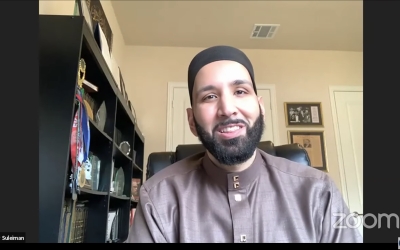
The organisation has also compiled a list of resources for the month, including access to virtual community iftars, religious classes, recipes, charity initiatives, unemployment services and mental health hotlines.
For Hamid, while she cannot share any meals with her friends, that is not stopping her from sharing food. The psychology student said that she intends to drop off meals at her friends' houses, and vice versa, that way they can participate to some degree in the iftar experience.
The idea stems from a cultural tradition that exists in many Muslim countries, where families deliver dishes to their neighbours and other families for the iftar meal. It is then up to the recipient to return the plate or dish they received, but they cannot return an empty platter.
"I'm planning to make food and travel around to give it to close family and friends we would normally have iftars with if we had the ability to, just to create that [love]," Hamid said.
A Ramadan to remember
Hassan Kane said he has a three-tiered goal for the month: scoping out what is happening in the community, creating a mechanism to hold friends accountable for their Ramadan goals and to make an even greater effort to connect with his immediate family.
With one sister in France, another sister living in Ohio, and his parents currently living in Cote d'Ivore, Kane - a recent graduate of the Massachusetts Institute of Technology - is spending his Ramadan without his family in Boston.
"It has become even more important within the family to have systems of support and goals in place," he said.
Kane said he spent the time before the month focusing on individual practices and keeping in touch with his close social circles. Now, with the month beginning, he wants to shift to trying to connect with people within the wider Boston community.
"I'm still overall caught by surprise because the pre-Ramadan hype that you feel is not as much there," he said.
While there are many negatives to the month, with the mosques being closed and people worried about their finances, Kane noted that there is one thing that should be clear: With many Ramadans, the month seems to go by in a flash, and the older a person gets the more the different years get jumbled into vague memories of certain experiences.
This year, however, no one is going to forget.
"I'm sad, but if anything, it's going to be one of the Ramadan's we best remember," he said.
Middle East Eye delivers independent and unrivalled coverage and analysis of the Middle East, North Africa and beyond. To learn more about republishing this content and the associated fees, please fill out this form. More about MEE can be found here.


